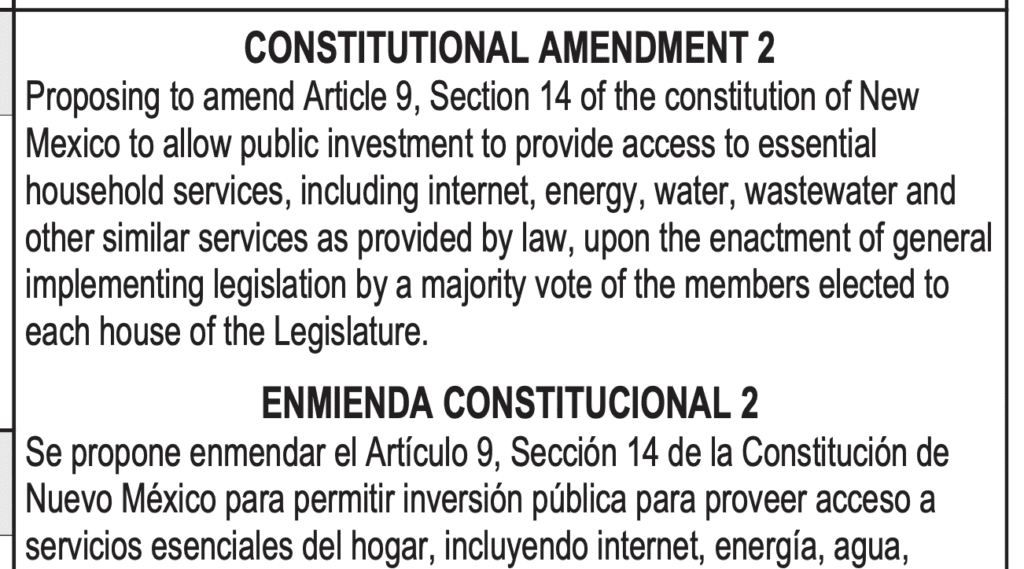More than a dozen early voting polling locations open across Albuquerque Saturday, Oct. 22. On the ballot voters will see the option to vote for or against three constitutional amendments.
Amendment 1 regards the distribution of monies from the Permanent Land Grant Fund for public education and early childhood services. Amendment 2 allows for an exception to the anti-donation clause to provide state funding for essential services. Amendment 3 is regarding the amount of time an appointed judge must serve in office before an election can be held for that office.
The New Mexico Legislative Council Service provides a summary of and arguments for and against the amendments, made available in an online .pdf document. The following is a snapshot of the summary and arguments for and against Constitutional Amendment 2.
Summary
Constitutional Amendment 2 asks New Mexico voters if they are in favor or against amending Article 9, Section 14 of the state constitution to allow for an exception to the anti-donation clause for the purpose of providing state funds for essential services. Essential services include internet, energy, water, wastewater and other similar services as provided by law.
Exceptions to the anti-donation clause already in the constitution include the allowance of state funds to be spent on 1. sick and indigent persons; 2. wartime veteran scholarships and tuition; 3. loans for health care workers who contract with the state; 4. economic development for businesses; and 5. affordable housing.
The anti-donation clause prohibits the state from directly or indirectly pledging credit or making donations to or in aid of any person, association or public or private corporation or in aid of private enterprise for the construction of any railroad, except for those purposes listed above. The intent of the anti-donation clause is to prevent large subsidies to private corporations and to safeguard public funds.
Pros
Allowing the state to provide direct assistance for essential services will benefit rural New Mexicans who do not have access to these services. Private enterprise is unable or unwilling to provide these services to large swaths of New Mexico and state assistance can help create public-private relationships to build out utilities in mostly rural areas where it is difficult to offer such services by private enterprise alone.
Another argument in favor of the amendment says the change will allow the state to implement federal programs by leveraging state funds it is unable to use due to the anti-donation clause. In addition, direct public assistance for essential services can help connect one-fifth of the state’s residents who do not have internet at home, allowing for access to telemedicine, remote learning and remote work. Lastly, the amendment requires further implementation and adoption by both chambers of the legislature as well as safeguards to protect public money and other public resources, which in theory should prevent corruption and unfair uses of public money for such services.
Cons
Arguments against the amendment include the lack of clarity in the text, particularly regarding the verbiage “other similar services as provided by law.” This lack of clarity may allow future legislatures to interpret the exception to the ant-donation clause in various ways that do not benefit the public as intended.
There is also lack of clarity on how the state will safeguard public money and no inclusion of a spending cap. Private contractors may benefit from the public assistance more than the residents it is intended to help. Lastly, another exception to the anti-donation clause may make the clause defunct all together, and in the meantime create confusion as to what is allowed and what is not under current law.


